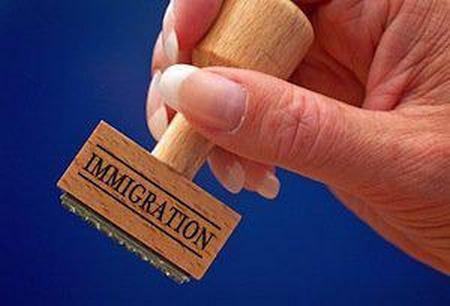What Is E-Verify?
 When an individual arrives in the United States, a first priority is to find work. In order to do so, he or she must go through the usual channels—but with an added step. It must be verified that he or she is legally permitted to hold a job in the United States. The government uses a tool called E-Verify to perform this action before allowing an immigrant to be hired.
When an individual arrives in the United States, a first priority is to find work. In order to do so, he or she must go through the usual channels—but with an added step. It must be verified that he or she is legally permitted to hold a job in the United States. The government uses a tool called E-Verify to perform this action before allowing an immigrant to be hired.
Form I-9 and E-Verify
Both citizens and non-citizens must fill out a Form I-9 when beginning a job. An I-9 is an Employment Eligibility Verification intended to verify that someone is legally entitled to work in the United States. Along with the I-9, documentation must be provided that proves both identity and employment eligibility. This can be done with many possible forms of identification; for non-citizens, the most common forms are a foreign passport with employment authorization or a Permanent Resident card (green card).
Once the I-9 has been completed, an employer can then input the data into E-Verify. E-Verify is a database maintained by the Department of Homeland Security, and contains the I-9 information for employees. The results appear in seconds. If there is a match, the employee is legally permitted to work. The most recent data available place E-Verify’s accuracy rate at approximately 94 percent. However, if there is an issue, an employee is allowed to work while the problem is solved.
After an employee is cleared to work, his or her I-9 information must be kept by the employer for a certain amount of time—either until three years after the employee began working for pay, or one year after termination, whichever is later. The I-9 and E-Verify results must also be available for inspection by federal authorities (either from the Department of Homeland Security, Department of Labor or the Justice Department) during the employee’s entire tenure.
Is E-Verify Mandatory?
Many misconceptions abound that E-Verify is mandatory for all businesses, and this is not the case as of this writing. Currently, only nine states have passed legislation mandating use of E-Verify for most employers, but 10 more require E-Verify for public contractors and other entities.
In terms of its use in Illinois, E-Verify has a long, controversial history. In 2008 when it was first proposed, Illinois actually had a law called the Illinois Right to Privacy in the Workplace Act that precluded the use of E-Verify. Lawmakers were concerned about the accuracy and the ability to keep private data private. The Department of Homeland Security brought suit under the Supremacy Clause, arguing that the state law precluded federal law, which is unconstitutional, and DHS prevailed. The law was amended, though even now in Illinois there are strict guidelines that employers must follow before they are encouraged to use E-Verify with their employees. Illinois guidelines mandate far more training than most other states.
An Experienced Immigration Attorney Can Help
Due to Illinois’ unusually heavy restrictions on E-Verify, you may encounter problems when applying for and being offered work. However, contacting an experienced Chicagoland immigration attorney can help. Mevorah & Giglio Law Offices has a long history of success in employment-based immigration matters. Call us today to schedule your consultation.
 English,
English,
 Spanish,
Spanish,
 Polish,
Polish,
 Urdu
Urdu












 Make a Payment
Make a Payment



